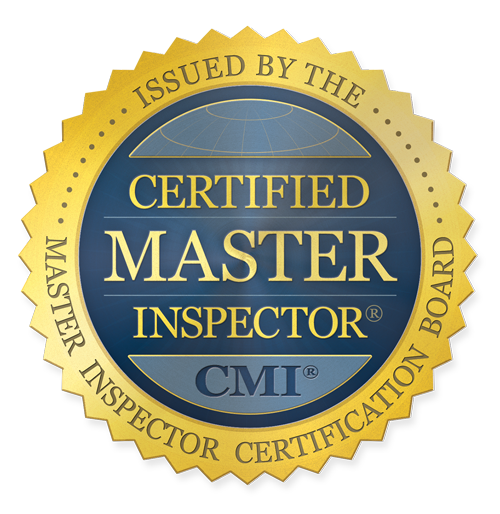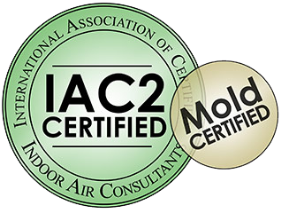Are you getting ready to sell your home in Florida? If so, you benefit from making any structural repairs or home system replacements necessary to “pass” the home inspection.
Home Inspection Green Lights Gain Top Prices for Sellers
Home inspections are a part of virtually every residential real estate transaction in the market. Typically, a four-point home inspection is performed after a buyer makes an offer and before they sign the contract. In addition to verifying the status of a home’s structural stability and critical systems, home inspections also determine whether a home qualifies for homeowner’s insurance – a necessity for any buyer using a lender.
However, your pre-sale inspection gives you time to get your home sale-ready. And, in some cases, a recent, pre-sale inspection report from a qualified local home inspector is enough to convince buyers to make an offer without their own inspection.
As its name implies, a four-point inspection closely evaluates four of a house’s main systems.
1. A Roof Inspection (Including Attic Insulation & Ventilation)
Roofs are costly to replace, so most buyers want a home with a relatively new, well-maintained, and insurable roof. However, beyond that, roofs are essential to the safety and security of your home during a major storm event. An outdated or compromised roof is likely to blow off – or cave in – during high wind, strong rains, and potential tornado or hurricane conditions.
Also, Florida homeowner’s insurance carriers are refusing to insure homes with roofs that are 15 years old or more. Buyer agents know to look out for any signs of an older roof. If you haven’t repaired or replaced your roof, do so before you put your home on the market, or be prepared to offer significant buyer incentives that mean a lower total sales price.
The roofing inspection goes beyond the basic roof structure, also looking at the attic’s insulation and ventilation systems. Insulation and ventilation are essential to whole-home energy efficiency and comfort, and they also support moisture control and healthy humidity levels. Florida homes lacking adequate insulation and ventilation are notorious for mold and mildew infestations as well as structural rot due to extended moisture damage.
2. The Electrical System
The National Fire Protection Association (NFPA) states that faulty electrical wiring is one of the top five leading causes of house fires in the United States. So, it’s unsurprising that your home will also be subject to an electrical system inspection. Prospective buyers need to be aware of inadequate outlets, malfunctioning switches, outdated wires, electrical panel issues, or overloaded circuit breakers to make an informed decision – or offer.
Signs of an outdated electrical system include:
- Cloth wiring
- K&T (knob and tube) wiring systems that aren’t compatible with code-specific grounding or GFCI regulations
- Electrical panels made before 1985
- Inadequate number of electrical outlets in specific rooms or locations
- Lack of GFCI circuits in kitchens, bathrooms, laundry rooms, basements, etc.
- Scorch or heat marks on outlets or switches
- Frayed wires
- Lack of grounding wires
- Rodent damage
All of these are considered high-priority inspection red flags and require replacement or repairs before the house is sellable – or insurable.
3. HVAC and Other Related Parts
A home’s heating, ventilation, and cooling systems are about more than just comfort – especially from an insurance carrier’s perspective. When poorly installed or maintained, or when completely outdated, the components comprising a home’s HVAC system can do significant damage via fire risk.
In addition to inspecting the main HVAC unit or any older-model furnaces, we’ll also examine the following:
- Ductwork
- Ventilation system components
- Wall or window ACs
- Boilers
- Fireplace(s), chimney(s), and flus
Your inspector won’t perform a detailed inspection of every part of your HVAC, but they will ensure that they appear well-maintained. Usually, an inspection report recommends replacement if HVAC parts are 15 years old or older.
4. Plumbing System Inspection
Finally, a four-point inspection also evaluates a home’s plumbing system. Outdated or poorly maintained plumbing systems are responsible for sewage backups and flooding, which cause significant damage inside the house and to its structural components.
During a plunging system, we keep an eye out for the following:
- Old (19+ years ) water heaters (which are responsible for considerable home issues, like undetected leaks, mold growth, and carbon monoxide poisoning)
- Outdated pipes (acceptable pipe materials include PVC, copper, cast iron, PEX, or galvanized metals)
- Leaks at plumbing joints and connections
- Damaged or cracked pipes and other plumbing parts and fixtures
- Any evidence of a malfunctioning sewage/septic system
Inspectors also perform general inspections of sinks, toilets, bathtubs, and faucets. However, these are only to note the general condition and any current or former leaks that may indicate latent water damage.
What’s a Seller’s Expectation During the Inspection?
Sellers do not have to be present during the inspection. If you suspect a buyer’s inspector will find issues that may negatively impact their offer – or the final sales price – it’s worth investing the reasonable cost associated with your pre-sale inspection. Sellers receive a detailed report that can guide you and your agent as you determine which items to repair and replace or which ones can be left as is.
The final inspection report also guides the initial listing price. For example, a home with updated systems that passes the inspection with flying colors can expect to get thousands – if not tens of thousands – more than a home that needs one or more significant systems repairs/replacements. Sellers with a home requiring roof replacement or showing signs of outdated electrical or plumbing systems can assume a final sales price below the market rate.
Fortunately, the best home inspection companies guarantee a 24-hour turnaround on inspections and their finalized reports. This gets you the information you need ASAP to make informed decisions.
Aren’t We Off the Hook If Buyers Waive an Inspection?
Don’t get too excited about the prospect of buyers waiving a home inspection. First, those offers are less common in this cooling market with rising interest rates. The average homeowner relies on a home loan to make their purchase, and lenders (and homeowner’s insurance carriers) require home inspections. Therefore, sellers should assume their home will be inspected.
Secondly, sellers can wind up at the center of a lawsuit if undisclosed items appear in a post-sale inspection. So even if you aren’t at fault, you may still have to spend time, energy, and resources on litigation that would have been avoided by working with an experienced, licensed home inspector.
SIP Provides Sellers Required Info in 24-Hours or Less
Are you interested in learning the status of your home before putting it on the market? Want to know about major red flag items before the buyers bring them to you via their own inspection? Scheduling a building inspection ensures you know exactly where your home stands from a structural standpoint, so there are no surprises down the road.
Contact Super Inspection Pros to schedule your pre-sale building inspection. The combination of our inspection, and qualified, documented repairs, means you can sell your home at the highest possible price.

